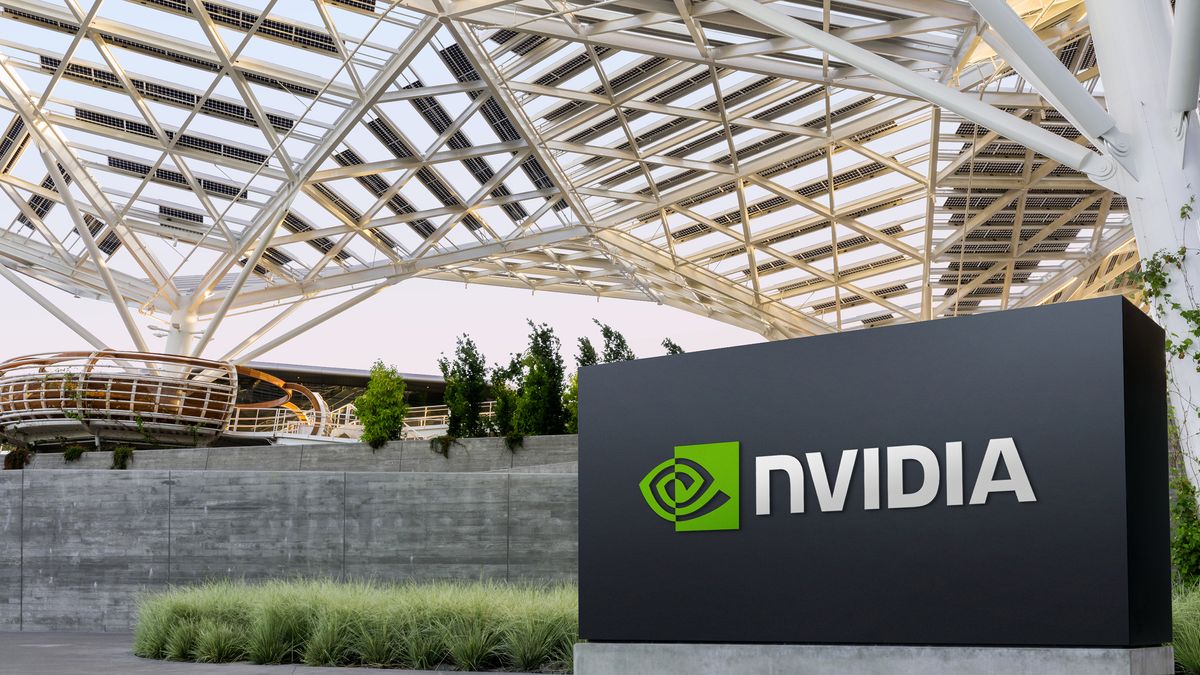In today’s episode, our host Zoë Schiffer is joined by WIRED’s senior politics editor Leah Feiger to run through five of this week's best stories—from how AI is eliminating entry level jobs to why a secretive Democrat group is funding high-profile influencers. Then, Zoë and Leah dive into the scoop that AI researchers recently recruited to Meta Superintelligence Labs are already leaving—with some heading back to OpenAI.
Join us live in San Francisco on September 9. Get your tickets here.
Mentioned in this episode:
Researchers Are Already Leaving Meta’s New Superintelligence Lab by Zoë Schiffer and Will Knight
AI Is Eliminating Jobs for Younger Workers by Will Knight
Elon Musk’s xAI Sues Apple and OpenAI Over App Store Rankings by Zoë Schiffer
A Dark Money Group Is Secretly Funding High-Profile Democratic Influencers by Taylor Lorenz
What It’s Like Watching Dozens of Bodies Decompose (for Science) by Jess Thomson
You can follow Zoë Schiffer on Bluesky at @zoeschiffer and Leah Feiger on Bluesky at @leahfeiger. Write to us at [email protected].
How to Listen
You can always listen to this week's podcast through the audio player on this page, but if you want to subscribe for free to get every episode, here's how:
If you're on an iPhone or iPad, open the app called Podcasts, or just tap this link. You can also download an app like Overcast or Pocket Casts and search for “uncanny valley.” We’re on Spotify too.
Transcript
Note: This is an automated transcript, which may contain errors.
Zoe Schiffer: Hey, this is Zoe. Before we start, I want to share some exciting news with you. We're doing a live show in San Francisco on September 9th, in partnership with KQED. Uncanny Valley cohosts Lauren Goode and Michael Calore will sit down with our editor in chief, Katie Drummond and a special guest for a conversation that you won't want to miss. You can use the link in the show notes to grab your ticket and invite a friend. We can't wait to see you there. Welcome to WIRED's Uncanny Valley. I'm Zoe Schiffer, director of business and industry. Today on the show, we're bringing you five stories that you need to know about this week, including our exclusive scoop on how at least three AI researchers recently recruited by Meta's Superintelligence Labs have already decided to jump ship. I'm joined today by our senior politics editor, Leah Feiger. Leah, welcome.
Leah Feiger: Hey Zoe, thanks for having me.
Zoe Schiffer: So Leah, our first story this week is about how AI is already starting to replace certain jobs. And let me tell you, when I read this study, I instantly thought of you. This is a study from Stanford University that our colleague Will Knight reported on, and the study found the strongest evidence yet that AI is starting to eliminate a slice of entry-level jobs, particularly in customer service and software development. In those industries, they found a 16% decline in employment for workers aged 22 to 25.
Leah Feiger: I think the thing that really got me about this study and from Will's excellent write-up is that the main thing that you do in these entry-level jobs is figure out how to be a real human and how to live in an adult world and how to respond to emails and show up places on time. I think we have to actually be a little bit more forward-thinking. We have to think about what does that then mean for people who would have become managers, would have become leaders in these different industries where these entry-level jobs are getting cut. We're losing a big pipeline, and that's what freaks me out the most. Do I care that menial tasks are being done by AI? Not hugely, but there's these intangibles of becoming a human straight out of undergrad that we're just going to miss now.
Zoe Schiffer: I completely agree with you. These jobs are really about training you how to be a professional, and when you don't get that training, these companies still want more experienced workers and they want those people to be collaborating with artificial intelligence, but it's like how do you get people to that point if the entry-level jobs are being eliminated?
Leah Feiger: How do you get experience? How do you get experience?
Zoe Schiffer: Staying with AI a little bit longer. Elon Musk's company, xAI filed a lawsuit against Apple and OpenAI earlier this week, and he's accusing them of behaving like monopolies and claiming Apple deprioritized ChatGPT rivals like Grok in the App Store. The lawsuit takes particular issue with Apple's integration of ChatGPT into the iOS operating system last year.
Leah Feiger: I know this isn't the first time that Musk has sued OpenAI either. The thing that really gets me is these two men hate each other.
Zoe Schiffer: This feud goes way back. Elon Musk was one of the founders of OpenAI, and early on, they actually had this leadership fight where both Sam Altman and Elon thought that they should lead the company, which at the time was a nonprofit. Obviously, Sam Altman won that fight. And then in the aftermath, Elon Musk eventually sued OpenAI saying, hey, you've abandoned your founding mission, because at a certain point they started a for-profit subsidiary.
Leah Feiger: Is that actually serious? Is having a second spot, does that actually detract consumers?
Zoe Schiffer: It is a big deal. If you look for a productivity app and you see ChatGPT first and Grok second, you are more likely to download ChatGPT, but I think the argument that you'll definitely hear from OpenAI, but even reasonable third-party observers, will say that's not evidence necessarily of Apple colluding with OpenAI. It might just be a more popular app.
Moving on to our next story. WIRED contributor, Taylor Lorenz reported about a mysterious group that seems to be funding Democratic influencers. These people are just like regular influencers except they post about liberal politics. Taylor learned that back in June, a group of them received an offer to get as much as $8,000 per month to take part in a program aimed to bolster Democratic messaging via their accounts. The offer came from Chorus, the nonprofit arm of the Sixteen Thirty Fund, and the offer came with a lot of strings attached. The influencers were not allowed to tell anyone about their involvement in the program. They had really strict restrictions on what type of content they could post. What did you think when you heard this?
Leah Feiger: I thought two things. One, we got to publish this story. Two, our readers are going to kill us. Republicans have done something similar to this for a very long time. Paying influencers and doing your very best to not disclose any part of it is not new to the political process. A lot of folks in 2024 were like, Democrats need to be going harder. They need to be doing so much better with their social media, with their influencers, with whomever. And at WIRED, we went really hard on that too. And watching the Harris campaign, and before that, the Biden campaign put out very canned content. They were playing by the old rules, and that's just not how the internet works anymore. And so while the Republicans are paying their influencers, it's happening in different ways and it's happening under a much larger tent. The thing that's been incredible about watching the Republican social media strategy is that you have influencers who pick fights with Trump. You have influencers who pick fights with different campaigns, with JD Vance, with whomever, but they're still underneath this tent and they're still able to coalesce, whereas the Democrats have kept their tent so much tighter. So I'm not going to weigh in one way or the other what necessarily I believe the Democrats should be doing, but this has not won them campaigns in the past, this level of control, and I'm eager to see if anyone thinks it will going forward. And to be very clear, the DNC is not implicated here. This is a specific group. This is not Democrats as a whole. They are Democrats, but they are not the Democrats.
Zoe Schiffer: One more story before we go to break, and this one, stay with me, it's morbid as hell. It's by WIRED contributor Jess Thomson, who recently reported on what are known as Body Farms. These sites are basically what they sound like. They are forensic scientists to study how the human body decomposes. Obviously, all the bodies are donated. And by observing how fast cadavers break down in a controlled setting, investigators can learn about the decomposition and better pinpoint exactly what happened to dead bodies that are found out in the real world. They give classes to law enforcement and fire investigator partners based on their findings. They're only a handful of body farms in existence, and most are in the US. And the people running these facilities, interestingly, are mostly women.
Leah Feiger: Yes. So many thoughts. I have so many thoughts.
Zoe Schiffer: I know. The article, it's like a horror movie. It's an outdoor space where bodies are just laid out and you're watching them decompose. It's so scary.
Leah Feiger: Don't forget the netting that's around them to keep scavengers away. But also to be said, there's something kind of beautiful in a part of the article. These bodies are donated. It's literally to help law enforcement in the future figure out body decomposition when it comes to violent crimes.
Zoe Schiffer: And they do say right at the beginning the thing in cop shows where they're like, the body's been here for three days, and they were like, well, that's not real.
Leah Feiger: I loved that. Anything that tells me that Law & Order SVU is not in fact accurate is good by me.
Zoe Schiffer: We need that.
Leah Feiger: We definitely need that.
Zoe Schiffer: Coming up after the break, we dive into how some recently recruited AI researchers at Meta's Super Intelligence Labs are already packing their bags and leaving. Stay with us.
Welcome back to Uncanny Valley. I'm Zoe Schiffer. Here with me is our Senior Politics Editor, Leah Feiger. So our main story this week, our colleague Will Knight and I recently learned that at least three people who were recruited to Meta's Super Intelligence Labs have already resigned just two months after CEO, Mark Zuckerberg, announced the initiative. But this is the kicker. Two of the staffers have recently returned to OpenAI where they previously worked and they had less than one month stints at Meta.
Leah Feiger: That's wild.
Zoe Schiffer: Meta obviously felt some type of way about the reporting.
Leah Feiger: Did you get yelled at?
Zoe Schiffer: I got yelled at. But I think their POV was, these people didn't last any length of time. What is this telling us? But in my mind, Mark Zuckerberg just went on this massive multi-billion dollar recruiting spree. He's giving people pay packages more often associated with professional sports stars. And the fact that some people are already leaving very, very shortly after starting that is just such a bad sign, I think. It's not to say that this lab couldn't be successful or they couldn't turn things around, but it just seems like there's a lot of chaos right from the beginning.
Leah Feiger: Well, you're being offered $100 million in a bonus. You get there. You don't even have time to bring in your favorite mug. I know there's incredible food at Meta. You can't even find your favorite cafeteria yet. A month is not enough time. What got them back to OpenAI, do you think?
Zoe Schiffer: So this is something that I'm still trying to figure out, because it didn't seem like from my reporting so far that Sam Altman just dangled an even bigger pay package. And Meta has deeper pockets. They can offer more money, which isn't to say that OpenAI isn't trying to compete on that front, but the whispers that I was hearing were more about mission alignment and leadership. You'll hear people say, well, Alexander Wang, who is the CEO of Scale AI, this very young founder, he's not technical, is what people will allege. He's not a hardcore researcher, and he's now leading Meta Superintelligence Labs. He was tapped earlier this summer to take on this really big role at Meta. Sam Altman's not a super technical researcher either, but he really has almost what I would say is a cult of personality around him at OpenAI. And Mira Murati had this too. Mira was the CTO, but she wasn't like Ilya. She wasn't a hardcore researcher in that way, but she was able to talk to researchers. They really felt understood by her. They trusted her. And so I think she too is able to get a lot of loyalty from the people she works with, even if she's, from what I hear, not paying the astronomical sums that Meta might be.
Leah Feiger: But those sums clearly aren't even enough. I was really trying to think about it. If someone offered me $100 million and I couldn't make it through the first month, what would've had to have happened?
Zoe Schiffer: Yeah. I'm struggling because I love money.
Leah Feiger: I'm really not sure. You've done such a good job of this as you've covered the AI talent wars throughout the summer of these cults of personality, but also you covered some messaging that Altman was sending the entire team earlier. It was so mission driven. And on the Meta side, it's really kind of felt like a cash grab.
Zoe Schiffer: Yeah, that's such a good point. I think when you compare it to OpenAI and Anthropic, whether you believe what Sam or Dario are selling in terms of like, oh, AI is going to completely change the world, it's going to have these biomedical breakthroughs, it's going to create personalized medicine, it's going to do X, Y, Z, that is a very compelling mission if you buy into it even 20 or 30%. Versus on the Meta side, we talk to people who went through the recruitment process with Mark Zuckerberg and were like, yeah, it's basically like AI slop for Instagram and Facebook. That's in completely their interpretation. I'm 100% sure if you talked to them, or an executive, they would have a very alternate view, but it's personalized AI content for people, which is entertainment sure, but it's not the groundbreaking world changing initiative that these other companies are at least claiming.
Leah Feiger: Yeah, it's the shiny bubble.
Zoe Schiffer: Exactly.
Leah Feiger: We have to get in on it because the bubble.
Zoe Schiffer: It's the bubble. And honestly, it's worth saying it'll probably make Meta a lot of money, that will probably be successful from a business perspective.
That's our show for today. We'll link to all the stories we spoke about in the show notes. Make sure to check out Thursday's episode of Uncanny Valley, which is all about how unplugging, whether that's going off the grid or reducing your screen time, looks in 2025. Adriana Tapia and Mark Lyda produced this episode. Amar Lal at Macro Sound mixed this episode. Kate Osborn is our Executive Producer. Conde Nast, Head of Global Audio is Chris Bannon, and Katie Drummond is WIRED's Global Editorial Director.

 2 hours ago
4
2 hours ago
4








 English (US) ·
English (US) ·